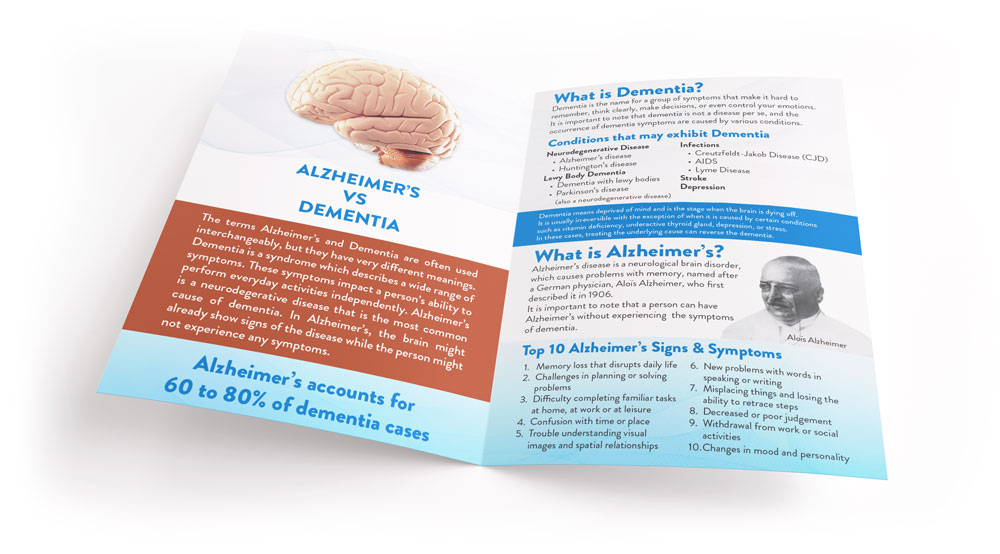DEMENTIA VS ALZHEIMER'S

The terms Alzheimer’s and Dementia are often used interchangeably, but they have very different meanings. Dementia is a syndrome that describes a wide range of symptoms. These symptoms impact a person’s ability to perform everyday activities independently. Alzheimer’s is a neurodegenerative disease that is the most common cause of dementia. In Alzheimer’s, the brain may show signs of the disease before the person experiences any symptoms.
Alzheimer’s accounts for 60 to 80% of dementia cases
What is Dementia?
Dementia is the name for a group of symptoms that make it hard to remember, think clearly, make decisions, or even control your emotions. It is important to note that dementia is not a disease per se, and the occurrence of dementia symptoms are caused by various conditions.
What is Alzheimer's?
Alzheimer’s disease is a neurological brain disorder, which causes problems with memory. It is named after a German physician, Aloïs Alzheimer, who first described it in 1906.
It is important to note that a person can have Alzheimer’s without experiencing the symptoms of dementia.
Dementia means deprived of mind and is the stage when the brain is dying off.
It is usually irreversible with the exception of when it is caused by certain conditions
such as vitamin deficiency, underactive thyroid gland, depression, or stress.
In these cases, treating the underlying cause can reverse the dementia.
Conditions that may exhibit Dementia
Types of Dementia
Neurodegenerative Disease
Lewy Body Dementia
- Dementia with lewy bodies
- Parkinson’s disease
(also a neurodegenerative disease)









